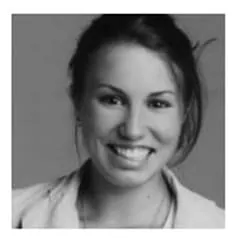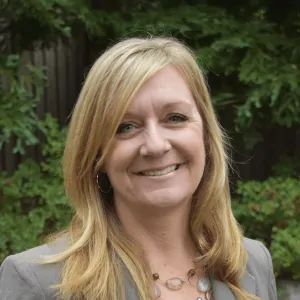

Join SCS Engineers at Green Technology’s Sustainable Facilities Forum on May 9 at the Scottish Rite Masonic Center in Sacramento, CA.
The conference will highlight strategies, best practices and technologies behind successful public sector facility projects. The event includes access to education sessions, live keynote, annual leadership awards presentations and to the sustainable products and services displays.
The concurrent sessions offer insights from the experts and practitioners at the leading edge of green progress, in fields ranging from transportation and energy to funding, architecture and green schools. Stroll through the exhibit space and discover dozens of green products and services all in one place. Find out what’s new and get an intensive, hands-on education that’s not available anywhere else!
The Forum is designed for public and private sector professionals engaged in facility project design, decarbonization, water conservation, electric vehicle and electric vehicle infrastructure.
Check the conference site for more details and information.
SCS Engineers, in partnership with the Wisconsin Department of Natural Resources – WDNR, is performing a waste sort to determine what’s in the trash going into Wisconsin’s landfills. During the waste audit, SCS will collect at least 200 samples of waste from 12 waste disposal sites across the state for eight weeks.
Solid waste, recycling, and diversion planners need to differentiate between the composition and sources of waste to appropriately manage recycling and diversion programs. These programs help citizens and businesses make the most out of their waste material and help control the cost of waste management.
Waste diversion can positively impact communities’ environmental health, reduce the potential for soil and water contamination, and conserve resources while reducing landfill operation costs. Municipal solid waste, called MSW, typically contains valuable materials. The cost of manufacturing using virgin materials increases, but technology creates new avenues for reusing materials formerly thrown away. The pandemic has influenced what we are consuming and where we dispose of wastes, from home or the office, influencing materials markets.
WDNR uses the waste audit data to evaluate current waste diversion programs’ effectiveness to identify and quantify additional materials that Wisconsin could divert from its landfills and serve as a baseline to measure future efforts. By comparing the new data to a previous waste composition study, WDNR can measure the impact of existing recycling and hazardous waste management programs. The comparison further helps identify waste generation trends and how the waste stream is changing.
The waste characterization study separately analyzes the waste stream generated from various sources, including residential, industrial/commercial/institutional, construction & demolition. For solid waste, recycling and diversion planners, it is vital to differentiate waste sources to target programs properly.
All of this helps make recycling more effective and identifies ways to reduce and reuse a large percentage of what is landfilled.
Many items we throw away have continued value. Cell phones and electronics contain valuable materials, like gold, for example. Cardboard is exceptionally valuable now, as citizens and businesses are taking more deliveries at home. Organics such as food and yard waste can turn into compost. Aluminum and steel cans can be recycled over and over again to make new cans. According to the Aluminum Association’s Can Committee, making a new can from recycled aluminum takes 95% less energy and releases 95% fewer greenhouse gases than creating the same can without recycled material.



Caroline Larose was awarded the Robert P. Stearns – SCS Engineers Master’s Scholar this year. Her project, “Material Flows: Strategies to Reduce Ann Arbor’s Municipal Solid Waste and Improve Diversion,” consists of a comprehensive benchmarking analysis of urban waste programs and a review of city stakeholders to distill a set of MSW management, education, and awareness best practices. Following her research, Caroline plans to draft recommendations for the City, which will include updated MSW goals and an action plan to improve diversion and reduce waste creation.
About Caroline Larose
Caroline chose to go back to school to further her pursuit of making cities more sustainable. She identified solid waste as her primary research focus and has worked towards her idea of eliminating waste as a concept. Caroline is now in her third year as a dual MBA/MS student at the Erb Institute for Global Sustainable Enterprise at the University of Michigan.
Caroline works to promote waste reduction and diversion on campus and throughout the Ann Arbor community by advising the implementation of campus-wide composting and uniform bin signage, as well as by organizing events such as the first Ross School of Business Waste Audit & Education Day and annual clothing swaps. Caroline, a member of the University-wide Student Sustainability Initiative board, has served as the VP of Sustainability for the Ross Net Impact chapter for 2-years. As a result of her leadership on campus, Caroline was selected to join the Ann Arbor Resource Management Team, advising the City of Ann Arbor on how to reduce its solid waste and improve diversion.
By following the simple procedures governing selective routing in the commercial space, it is possible to turn a high disposal garbage collection system into a high diversion recycling system, without incurring additional costs or losing collection revenue. Read more…
Tracie Onstad Bills of SCS Engineers and Richard Gertman of For Sustainability Too explain the steps for commercial-stream routing and management of commercial recyclables with remarkable results in their Resource Recycling article published in June 2016.
Questions? Ask Tracie, she writes a blog series about recycling.
This innovative sustainable materials management approach involves strategically picking up loads from businesses that generate similar types of discards. The linked article discusses the approach of following simple procedures governing selective routing in the commercial space.
Using a phased methodology, it is possible to turn a high-disposal garbage collection system into a high-diversion recycling system, without incurring additional costs or losing collection revenue. Dumpsters behind shopping plazas and other sites can become opportunities at the center of a thriving materials recovery program.
About the Authors:
Richard Gertman is the owner of For Sustainability Too in San Jose, CA.
Tracie Onstad Bills has been in the Environmental and Resource Material Management Field for over 20 years. Her expertise revolves around commercial recycling technical assistance, environmental purchasing, large venue and event zero waste programs, research and sustainability planning, garbage hauler franchise compliance and review, construction and demolition program / ordinance analysis and writing, climate inventory compilation, research and feasibility studies to help clients with comprehensive waste prevention and zero waste programs. Ms. Bills has a BA in Environmental Science from San Jose State University, is a CRRA Board member and belongs to the SWANA Gold Rush Chapter, National Recycling Coalition and the Northern California Recycling Association. Contact Tracie here.
by Tracie Onstad Bills, Northern California Director, Sustainable Materials Management at SCS Engineers
For many years source separation was the primary method for recycling. However, technology has changed how recyclables are collected and processed. China, the largest importer of materials for recycling now strictly enforces regulations on importing contaminated materials for recycling into the country. China’s Operation Green Fence puts restrictions on what material China will accept, rejecting materials that don’t meet higher standards of cleanliness; that means rejected materials get buried in a landfill instead of being recycled.
Regardless of the type of recycling program, the biggest challenge here at home is now minimizing contaminated recycling material. Communities are struggling to meet diversion goals and provide materials to local recyclers that are free of common contaminants such as liquids left in containers or motor oil. My SCS team has assisted communities in the last few years to address contamination issues and I’d like to share what works best to kick start addressing the issue at home.
Recycling Assessments: Conduct a visual and physical characterization study to identify contamination levels using one of these two methods for the evaluation:
Recycling Technical Assistance: Meet with local businesses and perform a walk-through of their facility to collect baseline waste assessment and material collection infrastructure information. This information can then be used to provide customized recycling and composting recommendations, and implementation support such as employee training sessions, providing signage and collateral, referrals, and multi-lingual outreach services.
Review and Analysis of Community Recycling Programs: Review and analyze your recycling program. An environmental engineer can provide recommendations and assessments on how a recycling program can be enhanced to reduce the quantity of contaminated materials. Services typically include everything from examining outreach materials to the flow of the recycling from generation to transport to processing.
Planning and Implementation of Behavior Change Programs: There is value in providing comprehensive programs and explicit outreach materials for increasing the probability of cleaner recycling. Behavior change programs focus on planning and implementing programs that identify key triggers to encourage action in the community. These programs help communicate the importance and value of specific activities to the community and cross any age and cultural barriers.
Contamination is a global problem and is challenging, but there are steps to minimize the problem in your community.

About Tracie Onstad Bills
Tracie Onstad Bills has been in the Environmental and Resource Material Management Field for over 20 years. Her expertise revolves around commercial recycling technical assistance, environmental purchasing, large venue and event zero waste programs, research and sustainability planning, garbage hauler franchise compliance and review, construction and demolition program / ordinance analysis and writing, climate inventory compilation, research and feasibility studies to help clients with comprehensive waste prevention and zero waste programs. Ms. Bills has a BA in Environmental Science from San Jose State University, is a CRRA Board member and belongs to the SWANA Gold Rush Chapter, National Recycling Coalition and the Northern California Recycling Association. Contact Tracie here.
Learn more on the SCS service pages and read SCS project case studies from across the nation to help fine tune your program: